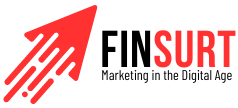Welcome to our ultimate guide on choosing the best employee management software for small businesses. In today’s fast-paced business world, efficient management of your workforce is crucial for success. Whether it’s streamlining HR processes, optimizing scheduling, or ensuring accurate payroll, the right software can empower your small business to thrive.
With a plethora of options available, finding the perfect employee management software can be overwhelming. That’s why we’ve compiled this comprehensive guide to help you navigate through the selection process and make an informed decision that meets your specific needs.
Key Takeaways:
- Assess your business needs and determine which HR functions are important for your organization.
- Consider compatibility with your existing systems to ensure seamless integration and avoid data duplication.
- Look for user-friendly software with customization options that align with your organization’s workflows.
- Evaluate the scalability, security features, and consider opting for cloud-based software.
- Read user reviews and testimonials to gain insights into the effectiveness and reliability of the software solution.
Assessing Your Business Needs and Compatibility with Existing Systems
Before choosing employee management software for your small business, it is essential to assess your business needs and identify which HR functions are crucial for your organization. By understanding your requirements, you can select a software solution that aligns with your goals and optimizes your HR processes.
Start by considering the areas that can benefit from automation. Evaluate tasks such as employee data management, payroll processing, benefits administration, and performance management. Identifying these areas will help you prioritize the features and functionalities that are essential for your business.
Additionally, compatibility with your existing systems is vital to ensure seamless integration and avoid data duplication, errors, and inefficiencies. Evaluate whether the software can integrate with your HR management tools, accounting software, and other business applications. This compatibility will ensure smooth data flow and enable your organization to optimize productivity.
Assessing Business Needs
“To choose the right employee management software, you need to understand your organization’s unique requirements. Identify the specific HR functions that need automation and customization to enhance efficiency and streamline processes.”
Assessing your business needs involves understanding the pain points in your current HR processes and identifying the areas that require improvement. By conducting a thorough analysis, you can determine the essential features, functionalities, and integrations that will make a real difference in your small business.
Compatibility with Existing Systems
While evaluating employee management software options, make sure to verify its compatibility with your existing systems. Incompatible software can lead to data discrepancies and loss, creating challenges and hindering overall productivity. By choosing a software solution that seamlessly integrates with your existing IT infrastructure and tools, you can ensure a smooth transition and uninterrupted operations.
Integrating employee management software with your HR management tools, accounting software, and other business applications enables data consolidation, eliminates manual data entry, and reduces the risk of errors. The compatibility of the software with your existing systems plays a vital role in harmonizing all your HR processes and enables you to maximize the benefits of automation.
| Benefits of Assessing Business Needs and Compatibility with Existing Systems |
|---|
| 1. Streamlined HR processes |
| 2. Avoidance of data duplication and errors |
| 3. Maximum utilization of automation solutions |
| 4. Optimization of productivity and efficiency |
| 5. Seamless integration with existing IT infrastructure |
By assessing your business needs and ensuring compatibility with your existing systems, you can make an informed decision when choosing the right employee management software for your small business. This thorough evaluation will help you select a solution that meets your unique requirements and supports the growth and success of your organization.
User-Friendliness and Customization Options
When it comes to choosing employee management software for your small business, user-friendliness is paramount. Your HR team should be able to navigate and use the software with ease, regardless of their technical expertise. An intuitive interface and simple navigation are key factors to consider.
However, user-friendliness goes beyond just ease of use. Customization options are also important to tailor the software to your organization’s unique workflows, policies, and reporting needs. Look for software solutions that allow you to configure the system according to your specific requirements and enhance its effectiveness in addressing your HR challenges.
“The software’s user-friendly interface and customization options have made a significant difference in streamlining our HR processes and improving overall efficiency.” – Jane Smith, HR Manager at ABC Company
By choosing a user-friendly software solution with customization options, you can ensure that your HR team can easily adapt to the software and make the most out of its capabilities.
Benefits of User-Friendly and Customizable Employee Management Software:
- Enhanced productivity: Intuitive interfaces and easy navigation reduce the learning curve for your HR team, allowing them to work more efficiently.
- Improved user adoption: When software is easy to use, employees are more likely to embrace it, leading to higher user adoption rates across your organization.
- Increased accuracy: Customization options enable you to align the software with your specific policies, reducing errors and ensuring accurate data management.
- Efficient reporting: Tailoring the software to your reporting needs allows you to generate insightful reports and gain valuable HR insights.
Overall, prioritizing user-friendliness and customization options in your selection process will result in a software solution that seamlessly integrates with your HR processes and empowers your team to efficiently manage employee data and streamline HR operations.

| Features | User-Friendliness | Customization Options |
|---|---|---|
| Intuitive interface | ✔ | ✔ |
| Easy navigation | ✔ | ✔ |
| Configurable workflows | ✔ | |
| Policies alignment | ✔ | |
| Reporting customization | ✔ |
Scalability, Security Features, and Cloud-Based Software
When choosing employee management software for your small business, it is crucial to consider the scalability of the solution. As your business grows, your HR requirements will evolve, and the software should be able to handle an increasing volume of employee data and accommodate additional functionalities. Scalability ensures that your software can grow alongside your business, without the need for frequent upgrades or replacements.
Another vital aspect to evaluate is the security features offered by the software. Protecting sensitive employee information is of utmost importance. Look for software solutions that provide robust security measures such as data encryption, secure login credentials, and regular data backups. These features safeguard your HR data and minimize the risk of unauthorized access or data breaches.
Furthermore, consider opting for a cloud-based software solution. Cloud-based software offers numerous advantages for small businesses, including easy accessibility and seamless integration with other cloud-based tools. With cloud-based software, you can access your HR data from anywhere, at any time, simply by using a web browser and an internet connection. This eliminates the need for expensive servers, software updates, and backups, making it a cost-effective solution for small businesses.
Cloud-based software also promotes real-time collaboration and easy access to HR data, making it particularly advantageous for small businesses with multiple locations or remote employees. Your HR team can efficiently manage and share information, regardless of their physical location, facilitating effective communication and streamlined workflows.
To summarize, when choosing employee management software for your small business, prioritize scalability to ensure the software can accommodate your growing needs. Additionally, prioritize security features to protect sensitive employee information. Lastly, consider leveraging the benefits of cloud-based software for easy accessibility, real-time collaboration, and cost savings.

| Scalability | Security Features | Cloud-Based Software |
|---|---|---|
| Handles increasing volume of employee data | Data encryption and secure login credentials | Easy accessibility from anywhere with an internet connection |
| Accommodates additional functionalities | Regular data backups | Seamless integration with other cloud-based tools |
| Scalable without frequent upgrades | Protection against unauthorized access | Real-time collaboration and easy access to HR data |
Conclusion
Choosing the best employee management software for your small business is crucial for improving your HR processes and overall efficiency. By carefully considering factors such as your specific business needs, compatibility with existing systems, user-friendliness, customization options, scalability, security features, and cloud-based options, you can make an informed decision that aligns with your goals and empowers your HR team.
Remember to assess vendor support, pricing, and licensing options, and take the time to read user reviews and testimonials. These will provide valuable insights and help you gather information to make an informed decision. Investing in the right employee management software can streamline your HR operations and contribute to the growth of your small business.
So take the necessary time to evaluate your options, prioritize your requirements, and select a software solution that not only meets your current needs but also has the potential to scale with your business. With the right employee management software in place, you can optimize your HR processes, ensure compliance, and focus on strategic initiatives that will drive your small business forward.
FAQ
What factors should I consider when choosing employee management software for my small business?
How can I assess my business needs and compatibility with existing systems?
What should I look for in terms of user-friendliness and customization options?
How important is scalability, security features, and cloud-based software for my small business?
What are the benefits of using cloud-based employee management software?
Source Links
- https://www.outsail.co/post/choosing-the-best-hr-software-for-small-businesses-a-comparative-guide
- https://staxpayments.com/blog/hr-software/
- https://www.linkedin.com/pulse/ultimate-guide-choosing-best-hr-software-solution-2024-timelabspro-ngpif?trk=organization_guest_main-feed-card_feed-article-content

